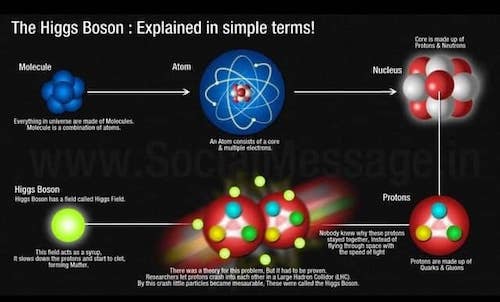Hypothetical particle. Sometimes called the "God Particle".

The Higgs boson is an incredibly important particle – for one, it was the final elementary particle predicted by the Standard Model of particle physics. The boson represents the Higgs field, which uniformly pervades the entire universe. Other fundamental particles, such as quarks and leptons, gain their mass by interacting with the Higgs field.
The hypothesis was first proposed back in the 1960s, but the Higgs boson wasn’t directly detected until 2012, finally confirming the mechanism. That earned the scientists who originally proposed the idea the 2013 Nobel Prize in Physics.
At the time it was first detected, the mass of the Higgs boson was measured as roughly 125 to 126 Gigaelectronvolts (GeV). And now that figure has been refined further, to an uncertainty of within 0.1 percent. According to the team, the Higgs boson has a mass of 125.35 GeV. Credit : New Atlas
See Also
Alphanon
Boson
Etheric Elements
God Particle
Supersymmetry
Vector Boson
Figure 7.7 - Keelys Morphology - Infinite Subdivision of Matter
